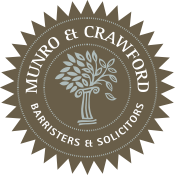
Gifting property to your children while you’re alive can be a meaningful gesture and, in some cases, a strategic estate planning move. In British Columbia, this decision carries both benefits and risks. While it may help simplify your estate or reduce probate fees, it can also trigger tax consequences or create complications if not handled properly.
Here’s what you need to know about how gifting real estate to children works in BC, and when it might make sense as part of your broader estate plan.
Can You Gift Property to a Child in BC?
Yes. In BC, you can legally transfer property to your child during your lifetime. This is commonly done by:
- Adding them to the title as a joint owner (with right of survivorship), or
- Transferring full ownership outright
However, both options have legal, tax, and practical implications that should be carefully considered first.
Why Some Parents Choose to Gift Property
- To reduce probate fees: Property gifted during your lifetime doesn’t form part of your estate, so it isn’t subject to probate.
- To simplify estate administration: You can reduce the number of assets that need to be distributed after death.
- To provide financial help: Helping a child enter the housing market or secure stable housing.
- To see the benefit now: Some parents prefer to witness their children enjoying the gift.
How Gifting Property Impacts Your Estate Plan
Gifting property may reduce the overall size of your estate, which can:
- Lower probate fees
- Reduce the risk of disputes if the gift is made clear and documented
- Shift wealth to the next generation in a more controlled way
However, it can also:
- Impact your eligibility for government benefits
- Create unfairness or resentment if not handled equitably across siblings
- Require updates to your will and related documents
Tax Implications of Gifting Property
There’s no gift tax in Canada, but capital gains tax may apply. When you gift property (other than your principal residence), it’s considered a deemed disposition at fair market value. That means:
- You may owe tax on any capital gain, even though you didn’t sell the property
- The recipient receives the property at its current market value as their adjusted cost base
What if It’s Your Principal Residence?
If the property qualifies as your principal residence, the capital gain may be fully exempt. However, if the home has been used for rental or business purposes, a portion of the gain may still be taxable.
Example: If you’ve rented out a basement suite or used part of your home as a home office, that portion may not qualify for the exemption.
Joint Ownership: What to Know
Adding a child as a joint tenant is a common strategy to avoid probate, but it comes with potential complications:
- Loss of control: They become a legal co-owner. Future decisions (like refinancing or selling) will require their consent.
- Exposure to their liabilities: If they go through a divorce, bankruptcy, or lawsuit, the property may be at risk.
- Unclear intentions: If it’s not clearly documented whether the joint ownership is a gift or held in trust, disputes can arise.
In BC, unless there is evidence that the transfer was intended as a gift, the law may presume a resulting trust: meaning the child may be seen as holding the property in trust for your estate. This can lead to legal challenges among beneficiaries.
Alternatives to Consider
If gifting now seems risky, other estate planning tools may help you achieve similar outcomes:
- Use a will: Bequeathing the property upon death may be simpler and more tax-efficient in some cases.
- Create a trust: A trust allows you to control how and when the property is passed on.
- Life estate arrangement: Transfer ownership while retaining the right to live in the home during your lifetime.
Quick Comparison Table
| Method | Probate Avoidance | Tax Exposure | Control During Lifetime |
| Gifting outright | Yes | High (capital gains) | No |
| Joint ownership | Yes (if survivorship) | Possible (uncertain basis) | Partial |
| Will-based transfer | No | Lower | Full |
| Trust (e.g., life estate) | Yes | Depends on structure | Customizable |
Why Legal Advice Is Essential
Gifting property isn’t just a personal gesture: it’s a legal and financial transaction. A lawyer can help you:
- Understand the tax consequences
- Update your will, power of attorney, or representation agreement
- Avoid common pitfalls (like unintentional triggering of capital gains)
- Ensure the transfer reflects your wishes and protects both you and your children
At Munro & Crawford, we help families across BC navigate these important decisions with clarity and care.
A Thoughtful Gift, with the Right Support
Gifting property to your children can be a powerful way to support them and shape your legacy; but it needs to be done with care. With proper planning and legal guidance, you can make decisions that benefit your family today while preserving peace of mind for tomorrow.
At Munro & Crawford, we regularly help clients weigh these options and avoid common pitfalls. Whether you’re gifting property now or planning for the future, speaking with a lawyer can help you make the best decision for your family.







